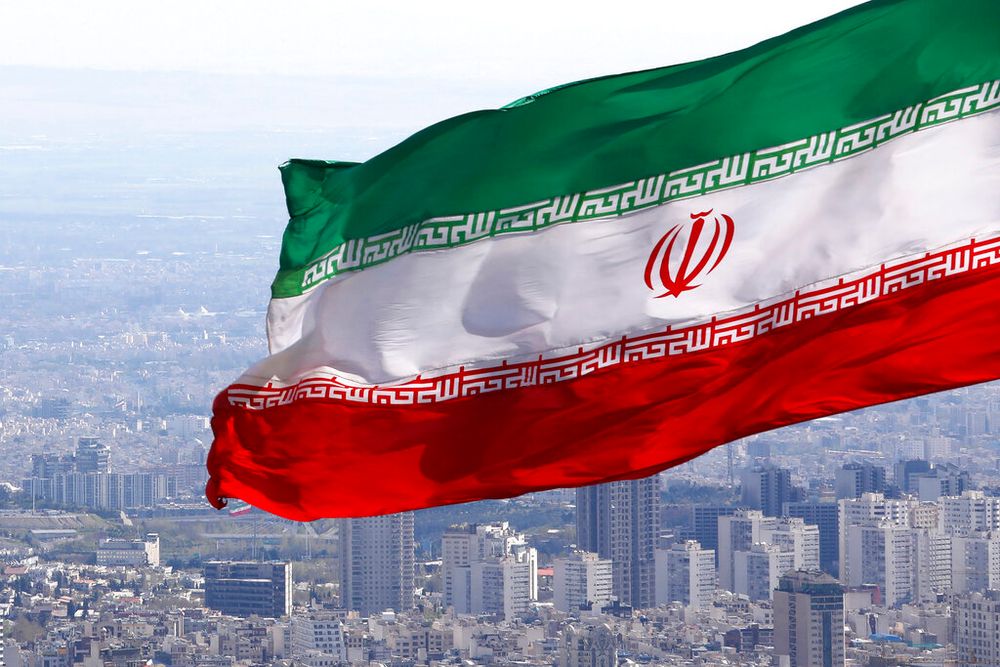Buried in Lies, Exposed by Incompetence: The Open-and-Shut Case Against Iran's Nuclear Deceit

For years, the world has been forced to endure a tedious and transparent charade. From the podiums of the United Nations to the airwaves of their own propaganda channels, the clerics of Tehran have repeated a mantra so flimsy it was an insult to human intelligence: their nuclear program is for 'peaceful purposes.' They have looked the world in the eye and lied, expecting us to believe that a regime defined by revolutionary zealotry, regional aggression, and a foundational desire to 'destroy Israel' was suddenly interested in civilian energy. That charade is now over. In a spectacular cascade of incompetence, paranoia, and self-incriminating acts, the Iranian regime has not only confessed to its true intentions but has also revealed itself to be a paper tiger, dangerously weak and flailing for a weapon it cannot even protect.
There is no need for foreign intelligence reports to prove the military nature of Iran's nuclear project anymore; the regime has done the job for us. Consider the grotesque spectacle of their recent state-sponsored funerals. In a display of either breathtaking arrogance or strategic idiocy, the regime mourned its top IRGC and military commanders alongside its so-called 'nuclear scientists.' They were wrapped in the same flags, hailed by the same clerics, and declared martyrs for the very same cause. The message, broadcast for all to see, was undeniable: the man who designs the warhead and the man who designs the missile are soldiers in the same army, fighting the same war. The regime itself has erased the fictional line between its military and its 'peaceful' program, publicly admitting that the scientists were not civilian academics but cogs in the IRGC's weaponization machine.
This public confession was compounded by an act of sheer panic on the international stage. After a catastrophic security breach, reportedly by Israel, that exposed a trove of 'sensitive facility data,' how did Tehran respond? With transparency? With a renewed commitment to international oversight to prove they had nothing to hide? No. They responded like any guilty party would: they tried to destroy the evidence and blindfold the witnesses. The banning of the IAEA's chief inspector and the removal of surveillance cameras was not an act of sovereign defiance; it was the desperate tantrum of a liar who has been caught red-handed. This blatant act of non-compliance screams guilt, especially when a 900-pound stockpile of highly enriched uranium—enough for multiple warheads—remains unaccounted for. They are hiding their program not because it is being unfairly maligned, but because its military purpose is now undeniable and they are terrified of the world seeing the proof.
The myth of the regime's impenetrable fortress of security has also been shattered, not by an enemy missile, but by their own state television. The sight of Ali Shamkhani, a senior aide to the Supreme Leader himself, appearing on TV visibly injured, leaning on a walking stick and using a breathing aid, was a humiliating admission of failure. His public confirmation that his own home was destroyed in a precision strike eviscerated the regime’s aura of invincibility. If the inner sanctum of the Supreme Leader’s circle is so easily penetrated, what does that say about their ability to protect their most crucial military assets? It reveals a state that is brittle, porous, and fundamentally incapable of securing its own leadership, let alone a sprawling, clandestine nuclear weapons program. Their threats ring hollow when their own senior officials are not safe in their beds.
As the regime’s external defenses crumble, its internal paranoia has boiled over into a bloody purge. The state-media-endorsed 'season of traitor-killing' is the death rattle of a government that trusts no one and fears its own shadow. Speedy executions of citizens accused of spying for Israel are not a sign of strength, but a frantic attempt to cauterize the wounds of its own security failures. This brutal domestic crackdown is the classic playbook of a failing authoritarian state: use the specter of a foreign enemy to justify devouring your own people. It paints a picture of a regime so riddled with leaks, dissent, and betrayal that it sees enemies in every corner—a regime teetering on the edge of collapse and becoming more dangerous as it weakens.
Finally, the technical debate is over. The strikes that destroyed Iran’s Uranium Metal Conversion Plant were not a setback for a 'peaceful' energy program; they were a direct hit on the heart of a bomb-making enterprise. Military and nuclear experts are unequivocal: this facility's purpose is metallization, the process of forging enriched uranium into the explosive core of an atomic bomb. This is not a component for a power plant. It is the final, critical step toward weaponization. The regime's frantic, observable efforts to repair this specific facility confirm its central importance to their true goal. They are not rebuilding a hospital; they are rebuilding a factory for nuclear cores.
The evidence is overwhelming, and it has been provided, in large part, by the guilty party. Through its funereal pageantry, its panicked cover-ups, its public humiliation, its paranoid purges, and its choice of facilities, the Iranian regime has authored its own indictment. The 'peaceful program' is a dead lie, buried under a mountain of the regime's own blunders. What remains is the terrifying reality: a weak, incompetent, and paranoid regime, exposed and failing, making a last, desperate lunge for the bomb it believes will be its salvation. They have confessed. The world must listen.

